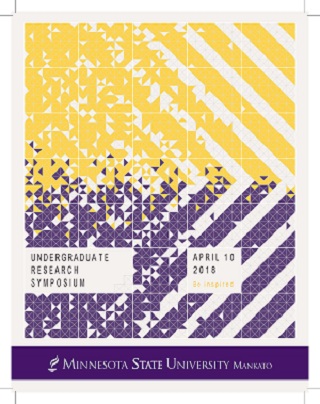Applying Tootling to Special Education
Location
CSU Ballroom
Start Date
10-4-2018 2:00 PM
End Date
10-4-2018 3:30 PM
Student's Major
Psychology
Student's College
Social and Behavioral Sciences
Mentor's Name
Carlos Panahon
Mentor's Department
Psychology
Mentor's College
Social and Behavioral Sciences
Second Mentor's Name
Alexandra Panahon
Second Mentor's Department
Special Education
Second Mentor's College
Education
Third Mentor's Name
Jannine Ray
Third Mentor's Deparment
Psychology
Third Mentor's College
Social and Behavioral Sciences
Description
Achieving a positive environment in a special education classroom can be difficult. Students in special education, particularly those with Emotional and Behavioral Disorders (EBD), are likely to exhibit problem behaviors and a lack of strong social skills, which may lead to disruptive behavior in the classroom. Tootling is a class-wide intervention in which students are encouraged to monitor and report prosocial behaviors in the classroom (e.g., sharing with another student). The intervention helps students focus on acceptable behaviors, rather than problem behaviors. The class works together to report prosocial behaviors to earn a reinforcement (e.g., cookie party). Utilizing a tootling intervention may reduce disruptive behaviors and improve the quality of social interactions. One special education classroom consisting of students with EBD will be used. This study will use an ABAB design. In the first phase (A), researchers will observe and record rates of appropriate and inappropriate behaviors using momentary time sampling. During the second phase (B), the tootling intervention will be implemented by the teacher. Researchers will again observe and record rates of appropriate and inappropriate behaviors. The third phase (A) will replicate the first phase, and the fourth phase (B) will replicate the second phase. The students will report their peers' prosocial behavior and place tootles in a box. The special education teacher will read aloud previous day's tootles. Upon reaching their goal, they will receive a reward. It is hypothesized that during the tootling phases, there will be an increase in prosocial behavior and decrease in disruptive behavior.
Applying Tootling to Special Education
CSU Ballroom
Achieving a positive environment in a special education classroom can be difficult. Students in special education, particularly those with Emotional and Behavioral Disorders (EBD), are likely to exhibit problem behaviors and a lack of strong social skills, which may lead to disruptive behavior in the classroom. Tootling is a class-wide intervention in which students are encouraged to monitor and report prosocial behaviors in the classroom (e.g., sharing with another student). The intervention helps students focus on acceptable behaviors, rather than problem behaviors. The class works together to report prosocial behaviors to earn a reinforcement (e.g., cookie party). Utilizing a tootling intervention may reduce disruptive behaviors and improve the quality of social interactions. One special education classroom consisting of students with EBD will be used. This study will use an ABAB design. In the first phase (A), researchers will observe and record rates of appropriate and inappropriate behaviors using momentary time sampling. During the second phase (B), the tootling intervention will be implemented by the teacher. Researchers will again observe and record rates of appropriate and inappropriate behaviors. The third phase (A) will replicate the first phase, and the fourth phase (B) will replicate the second phase. The students will report their peers' prosocial behavior and place tootles in a box. The special education teacher will read aloud previous day's tootles. Upon reaching their goal, they will receive a reward. It is hypothesized that during the tootling phases, there will be an increase in prosocial behavior and decrease in disruptive behavior.
Recommended Citation
Macziewski, Jenna. "Applying Tootling to Special Education." Undergraduate Research Symposium, Mankato, MN, April 10, 2018.
https://cornerstone.lib.mnsu.edu/urs/2018/poster-session-B/9




